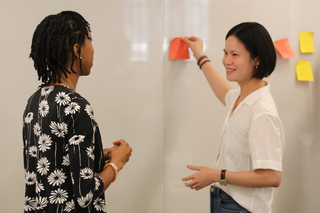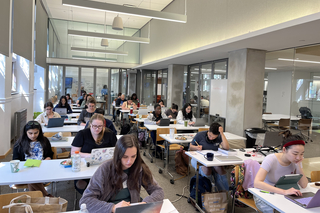Standards of academic integrity form the foundation of trust that allows scholars to highlight their contribution to an existing field of research and build upon one another’s work. The videos below guide you through the principles, the expectations, and the practices that will keep you academically honest as you contribute to the advancement of knowledge in your field.
Guidelines and Strategies
The following video describes the five types of academic misconduct identified in Yale’s Academic Regulations for graduate students. It explores the research and learning principles that underlie these policies and discusses strategies for maintaining academic honesty.
Guidelines and Strategies Quiz
Review the principles and expectations for academic integrity:
Summary and Paraphrase
This video breaks down examples of summary and paraphrase, essential tools for engaging sources without quoting. It discusses when to employ these strategies for entering an academic conversation, and how to paraphrase a source’s language without plagiarizing.
Summary and Paraphrase Quiz
Review your understanding of summary and paraphrase:
AI and Academic Integrity
This video describes the emerging conventions for when and how to cite AI tools used in the research and writing process. It applies core principles of academic integrity to writing with AI, presents citation guidelines from academic journals, and offers model citations for AI tools across a range of use cases.
AI and Academic Integrity Quiz
Test your understanding of academic integrity and AI:
Additional Resources
Still have questions about how to engage other scholars’ ideas in your writing, or want feedback on your use of sources in a draft? Schedule a 1–1 consultation with a Graduate Writing Lab Fellow.
Ready to submit to your instructor, a conference, or an academic journal? The Poorvu Center gives students direct access to Turnitin, where you can double-check that you’ve fairly paraphrased, summarized, and quoted your sources.
Explore GWL Programs
-
Writing Consultations
Get 1-on-1 feedback at any stage of the writing process—from brainstorming to final edits.
-
Workshops & Panels
Interactive opportunities to grow your academic writing knowledge or expand your toolkit of skills.
-
Peer-Review Groups
Groups of 4–7 students who meet weekly to share feedback, make progress, and support one another on a common project.
-
Writing Retreats & All Writes
Full-day and half-day events where graduate students set goals and write as a community in a quiet, supportive space.
-
Audience
-
Category


